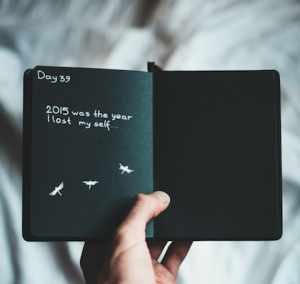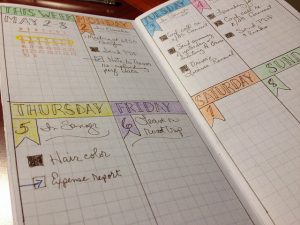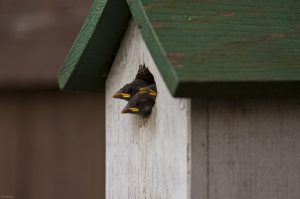Posts by Barbara O'Neal
Writing has become very public these days. We write on Twitter and Facebook, on blogs and in emails. We work hard to write well, be clever, capture attention, and because we’re good at writing, we’re often successful.
It feels like writing, doesn’t it? That series of events, write-post-garner attention-repeat, feels just like the experience of writing some other piece of writing and getting it out in the world and capturing attention.
The problem is that offering every thought up for public consumption often drains them all of depth. Another problem is that those polished jewels you’ve tossed out to Twitter/etc have used up a bunch of creative energy you might have spent on your actual writing.
Obviously, none of us are going to give up public writing. It has become part of our lives. Here I am, writing a blog (and enjoying it, just so you know). This morning, I wrote a bunch of Facebook posts, and I’ll avidly check back to see if anyone has responded. That’s what we do now. That’s what I do.
If writing is important to you—and you wouldn’t be here if it wasn’t—you should have a private writing practice as well as all that public work. Call it a journal. Call it a writer’s notebook. A diary. Lots of people are keeping bullet journals these days, and writing in them with their juicy fountain pens and special ink (my current favorite is Walden ink, with a Noodler’s Ahab Flex), which I think is a big plus—writing by hand is a way to access different pathways in the brain. Writing by hand is very personal, intimate, and creates a compelling emotional record over time.
The idea of a writer’s notebook has been with us for a long time. Mark Twain kept a notebook for most of his life, starting when he was twenty-one and couldn’t remember the instructions at a job. He eventually filled over 40 pocket notebooks,
“with observations of people he met, thoughts on religion and politics, drawings and sketches of what he saw on his travels, potential plots for books, and even ideas for inventions (he filed 3 patents during his lifetime). Many of his entries consist of the short, witty, pithy sentences he is famous for. He felt that if he did not write such things down as they came to his mind he would quickly forget them. He would also record little snippets in his notebooks of what had happened that day, such as what he had eaten and who he had seen. And finally, he wrote dirty jokes in the back of them.” (from The Pocket Notebooks of 20 Famous Men)
On LitHub, Dustin Illlingsworth said of writer’s notebooks:
“…what we find within their pages are wild, shapeless, violent things; elegant confessions and intricate codes; portraits of anguish; topographies of mind. Prayers, experiments, lists, rivalries, and rages are all at home here, interbred, inextricable from one another. A piece of petty gossip sits astride a transcendent realization. A proclamation of self-loathing becomes a paean to literary art. News of publication shares the page with the most banal errands imaginable.”
Just like life.
A writer’s notebook is […]
Read MoreAs writers, we dread judgment. It can be enormously painful to hear something very negative about work you’ve slaved over, work you love, maybe even work you think is your very best. Shutting out those voices in the modern world can be quite challenging.
How to manage?
On a recent trip to Santa Fe, I spent the better part of an afternoon immersed in the paintings of Georgia O’Keeffe, at the museum devoted to her work. It’s a little gem of a place, well-funded and popular. It was uncrowded that day, making it easy to linger.
I love her paintings, of course. The big, curvaceous flowers. The abstracts with their touches of teal; that color is so particular, and so delicious, and the part of me that likes to paint wonders how she blended it. The museum lets you wander through eras of her work, moving from the curves and circles and petals into the later angles, bones and mesas and hillsides and walls. Some of her most famous works are on display, notably Ram’s Head with Blue Morning Glory. Stunning, but never one of my favorites.
Next to it was a painting I’d never seen, an adobe wall and angle of sky with a single green leaf floating down. The simplicity mesmerized me, the colors, the play of shapes, the utter peace of it.
The museum also displays some of her cloud paintings. When she was in her 60s, she suddenly began to travel the world, going to Japan and Macchu Pichu and many other places. On those long plane rides, she was enchanted by the shape of the clouds from above, and the horizon. Who among us has not meditated on the clouds from the window of an airplane? I’d never seen those paintings either, and I spent a lot of time with them, admiring the way she captured the calm of that view, the simple, stunning quiet of it.
Inspired by all the work, I picked up a biography of her life. I already knew a lot of the early story, so I flipped to the later years. The biographer commented that O’Keeffe lost the passion of her youth as she aged and her work suffered the lack. She cited a few paintings, and I recognized that she meant those paintings I’d lingered over at the museum—the leaf against the wall, the clouds, the rivers from the air.
What?
Don’t get me wrong—I love the poppies and petunias. I’m a gardener, and I’ve spent decades peering into the hearts of flowers, shooting stamens and petals and the star shape of stigmas. All those swoops and sexy curves of O’Keeffe’s flowers are delicious in a way the later paintings are not.
The later work is quieter, simpler in some ways. Does that mean it lacks emotion? Not to my eye. They are not soaked with passion, but with curiosity, and a sense of the eternal. Those horizons in the cloud paintings are endless and meditative, offering intriguing possibilities of what might lie beyond.
And that single leaf, floating out of the sky, hanging for all of time against the perfection of a smooth adobe wall? […]
Read MoreWho is your favorite writer? The one you’d most like to sit down with, have a cup of coffee and talk about writing? What would you tell them about the time you read the book you love the most? How old were you? How did it transform you? Why do you love it so passionately?
Really. Think about this. What is the book? Who is the writer? Why is she/it your favorite?
It doesn’t matter if you have several. Just pick one for right now and hold your memories for a moment, because I want to talk about readers. Our readers, yours and mine.
Or rather, your one reader, the one who feels about your work the way you feel about that writer you love.
Naturally, we all want to be mega-super-stars with followings like JK Rowling or Elizabeth Gilbert or whoever you want to name, and I hope for every one of us that kind of success. But even if you become that star, you should always remember that one, single devoted reader.
Why? A few reasons. The first is that books are not judged by a single standard. It’s impossible to point to a book and say, “That is best book ever written and everyone will love it,” because it simply is not true. Certainly, some books have stood the test of time and so might be considered a cut above the rest (looking at you, Jane Austen) but we don’t have the advantage of knowing what future generations will love. We have to write today, now, for the climate we occupy, for the people who are reading now.
Read MoreAs you know, I am a self-employed writer. This business of putting my words on the page is how I bring money into my house. As every author must, I also engage in social media and various marketing and teaching gigs to keep myself afloat.
But sometimes life goes awry.
A week after Thanksgiving, I woke up with my sister’s cold, which she generously shared that family day, with all of us, though not my dad who refused to come to the feast because he didn’t want to risk getting sick.
Good thing. It turned out to be one of the sloppiest, most miserable colds any of us have had in years, lasting weeks and weeks.
But you know, Christmas season waits for no woman, so I dosed myself up with meds and went about my business. I had a back-and-forth schedule of revisions for my new book,The Art of Inheriting Secrets, that would end just before Christmas, and I was eager to have the chance to tweak and smooth and polish, the last shiny round before the book goes off to production.
On December 4th, I was rushing around on Christmas errands when I injured my ankle. It seemed like a low-key injury at the time—honestly, I can’t tell you how many times I’ve sprained this ankle—so I hobbled around on the rest of my errands. After a few days, I started to realize maybe it wasn’t just a sprain, so I hobbled into the doctor, who then hobbled me for real by sticking me in a walking boot to await surgery, which I absolutely did not want to have before I flew to San Antonio to see my darling girls for ten days at Christmas.
On December 6, my father went into the hospital. On December 7, my brother was visiting him and had a major heart attack—at the hospital, which absolutely saved his life. *
They live about 50 miles from me, and I was desperate to go see them, but—remember that cold? It was at the very worst level of contagion, so sloppy I didn’t even go out to the grocery store.
Finally my sister the nurse gently said that the worry of contagion was over. I hobbled down to see my dad on December 8, and when I was on my way home, he died. Yes, it was as terrible as it sounds. He was in poor health and had been in and out of the hospital for the past year, but it is still shocking and devastating when it actually happens.
Of course, then family took precedence, and my sons arrived (a great joy to play games at Christmas time, a pocket of happiness in all the chaos). There was the funeral and all that goes along with that, and the strange, loving, and sometimes uneven business of siblings grappling with the loss.
Meanwhile, in the writing world, I had those revisions on my first new book for my new publisher to grapple with. We were on a tight deadline to keep the pub date, so I was faced with either getting them done or pushing the date back, which I very much did not want […]
Read MorePhoto by Pavan Trikutam on Unsplash
Here in the Northern Hemisphere, the earth is bedding down for a long winter’s nap. The daylight hours are short, shorter, shortest, and the nights are long and cold. Bears are hibernating deep in their caves. Deciduous trees have shed their leaves. In my garden, all life has fled underground, where energy is being stored for the next season of growth.
We humans are meant to bed down, too. If we follow the wisdom of the earth, we’ll go to bed earlier, sleep a little longer, eat good soups and soothing stews. It’s a good time to let go of hard striving, and step back to consider what is, and what might be, and what we’d like to grow in the spring.
As writers, creative beings, we must have fallow times in order to produce good work. Winter reminds us that we can’t grow all the time. What does that look like?
Winter is a good time to read. A lot. The early dark and unkind weather means we’re trapped indoors. Instead of pushing to outline a new book or write another three pages today, consider reading a new book, or a lot of new books, all kinds of things, unrelated to any project that’s brewing—or maybe all related to a new project. Remember the pleasure of going to the library and bringing home a big stack of books? I don’t know about you, but I’d bring home all kinds of things, mysteries and romances and historical sagas and whatever else caught my eye. In those days, I didn’t realize books were curated by those who pronounced them good or bad, I just read. And read. And read.
What would happen if you gave yourself permission to read all winter, the way you used to read when you were a kid? Don’t read what you think you should–read whatever you want. Every evening, in a chair and then in bed, maybe in the bathtub in between. What would that do for your nerves?
What might all that reading do for your writing?
Another thing you might consider is—seriously—getting more sleep. Maybe move up your bedtime by an hour, incrementally. See how it feels. Often, we’re staying up to fill some imagined need to cram more into the day, but usually, it’s just a lot more nothing. YouTube or Facebook (guilty) or binge-watching something. What if you just gave it up and slept instead, like a hibernating bear, giving your body and your soul some downtime? Sleep gives your brain a chance to scrub the floors, organize the bits and pieces of everything you’ve gathered, work on the sticky plot points that have been bothering you. It also gives your body a chance to repair broken points, heal some tears and take out the trash collecting in this spot or that before it turns into something serious.
Read More
Tonight, I watched the latest episode of Outlander. It’s an intense, powerfully romantic story and this particular stretch is painful. But I, along with millions and millions of others, am riveted, as deeply invested in what happens to these two as if they are my best friends. Or… really, me.
I spent the summer watching Game of Thrones. Yelling at the television, laughing too loudly, crying my eyes out. If there is a series I’ve loved better than this, I don’t know what it is.
Me, and about twenty billion other viewers and readers.
Amazing, isn’t it? That a story, a story, has the ability to stop the actual culture, organize so very many of us into a single activity. We forget about bills, the politics of the moment, the trouble with our parents, the annoying boss, and for a single hour, we are united and unified in our passion for this….
Story.
How does that happen? How does a story take over everything? Everything? An entire culture?
I have no idea. I mean, I’d do it if I knew how. All of us would.
That is not what this column is about.
A few years ago, I had the opportunity to hear Elizabeth Gilbert talk about Eat Pray Love. She had no idea, writing it, that it would become what it has. She just needed to write about the things weighing on her heart. What happened had very little to do with her and her ideas and everything to do with a magic something that anoints a book and sets it alive in the world. She said “I had no idea what five million readers looks like. I still don’t, but…fly, little book, fly!”
It stuck with me. Fly little book, fly!
She didn’t do anything to make that happen. Except one quite singular thing: she wrote the book. She allowed the idea to come, planted the magic bean and did what she could to help it grow. She watered it with research, staked it with good craft and editing—and then she set it free into the world.
Just as Gabaldon and Martin did.
There’s nothing miraculous—and everything miraculous– about that. It’s as ordinary as oatmeal, and yet, it’s the way all great stories begin–with the writer giving space and time to an idea. It begins with you. With me. With each of us showing up for the ideas that inflame us. Ideas that might, one day, inflame the world, stories that might still be read a hundred years from now…or five hundred. I mean, really, Shakespeare was just a guy, this writer, who had a real knack for getting those magic bean ideas. Macbeth, Romeo and Juliet, A Midsummer Night’s Dream.
How do you recognize such genius ideas, these magic beans? How do you write those ideas instead of the other ones, the not-so-genius ones?
Read MoreI’ve spent the last eight months writing a novel, and I’m now closing in on the finish. What makes a good ending? How do you know if you’ve landed it?
One of my favorite TV shows of all time is heading into the final season, and I am not happy about it ending at all, so the actual end had better really hit all the right notes, or it will be ruined for me.
Ruined for all time.
A couple of years ago, I wrote a new adult series of five books about a love triangle. As I came closer and closer to the end, I started to realize that the ending I though I’d be writing was not the ending the books needed. To write it the way that was right, deep down right, I would have to break a sort of rule about triangles, which is that the girl will end up with the first guy the reader met. It’s not a hard and fast rule, not like the happily-ever-after of a romance novel. My protagonist had her happily-ever-after, and a happy romance.
But I knew I would get letters, and I did. One absolutely broke my heart, from a reader who’d been deeply invested in the series and couldn’t wait for the last book. She read it the minute it arrived, and cried all night long because the ending wasn’t the one she wanted.
Cried all night long.
That’s the kind of thing that will keep a writer up nights. I’ve rethought that ending a dozen times, a hundred. I tried to set it up so that readers would know there was ambiguity in this triangle, and new adult is known to break rules, but readers love what they love.
Just as I do. The reason things have to end the right way in Game of Thrones is because I am fiercely attached to one particular character. I need her to be okay. I love others, but she’s my heart. If she dies, I will cry all night long.
A series that was difficult to end properly was The Sopranos. I loved the way they didn’t exactly tell us, but you knew what happened. I could let it be however I wanted it to be in my head. It was logical. It felt true. It matched the series in tone and gave us the grace note of the entire series in one scene—Tony with his family at a diner, while his career is about to interfere.
A great ending emerges from the work itself, from the characters and the themes and, of course, the plot. To be satisfying, it has to answer all the questions that have been raised by the story (which means you have to know what those questions are). It has to have a sense of rightness in terms of what happens to each character, and it has to follow the rules of the genre you’re writing. Nothing is more irritating to a genre reader than a book that breaks the rules just because. My sister and I saw Message in a Bottle together at the movies, and after my rant at the end, which […]
Read MoreI love Mondays. That fresh start to the week, the untouched pages in my planner, the possibilities that stretch out into the distance, alluring and endless. I also have discovered a passion for bullet journals, and the practice has given me the impetus to track everything.
Mondays are the day my new week begins, and I can do anything! An hour of practice of tai chi every morning. Write 15,000 words toward the deadline looming. Gather a daily star for hitting my step count goal! Teach my dogs a new trick!! Eat great and lose a pound!!! Spend a half hour each evening with my Sketchbook Skool class!
Oh, yes, and weed every day!! Keep regular work hours, get that stuff uploaded to the site, explore that other opportunity that’s been nagging me. Cook cooling dinners because it’s hot.
Did I mention I have a deadline? A bare moon cycle from now.
But it’s Monday. I love Mondays, so I woke up and got moving early. So far, I’ve walked both of the puppies (separately, for training), which helps address dog time and step time. I did get my tai chi warm up in, and a quick run-through of the part of the 108 form that I’m working on.
Then I realized that everybody has peed on their beds and blankets and I have to wash them all. Up until then, I was pretty close to the schedule, which says I have to be at the computer with the Internet turned off by 8:30 am. I didn’t make it until 9:00, but the puppies are sprawled, unconscious, on the tiles of the living room floor so I should be able to get my words in.
Except—oops! I forgot I didn’t write this column yesterday because I was weeding one very overgrown part of the garden. And then my granddaughters called to FaceTime with me and then I talked to my son and wonderful new daughter-in-law in Italy.
That’s the trouble. Life! Life gets in the way of my goals! Every week!
Maybe your life is like that, too.
The main complicating factor in my life are the not-quite-four-month old puppies. Who are EXUBERANT! And spend hours every day racing around the family room, then outside, then climb in the water and roll in the dirt and drag in grass and dirt and who-knows-what, requiring another vacuum/mop/sweep. They also, it must be said, poo. A lot. Which requires a lot of clean-up. They also are not entirely great about potty training yet, which also requires clean-up. They need walking, and puppy classes, and vet trips. They also require lots of playing and love… I mean, we want friendly, happy dogs, right? I am required to kiss them a hundred and seventeen times a day and throw balls and play tug of war.
Did I mention I have a deadline?
The other trouble with puppies is that they don’t really sleep all night.Which means my work days are sometimes this: I made it to the computer, turned off the Internet, wrote for a half hour, and fell asleep. Woke up, got a drink of water, wrote another half hour, fell asleep.
Read More
When I’m in the middle of the book, there nearly always comes a time when I have to sit myself down and go all the way in—just write and write and write for 5 days straight, shutting out all outside distractions. I’m there now. I know a lot of what needs to happen, but there is a lot going on and I need to just go over into that world and let the story roll out. I need to do this without the distractions of my ordinary life, social media, or even my beloved partner.
I need to go all in.
My name for a week like this is a book blitz. When I posted on Facebook that I was going to do one this week, writer Lexi Ryan said she was going to do Camp Book, same idea, showing up for the book and letting other things go for the week. Loreth Anne White also said she had to do this, and she’d join in. She’s calling hers Book Boot Camp.
Whatever you call it, the idea is the same: for a period of a week, the book comes first, all day long. No appointments, no external commitments, just writing. Lexi is setting a time goal. I like a word count goal, something that’s much higher than I would ever do in an average day, in this case double my usual 2500 words per day, or 5000 words.
Some writers go for the full seven days, but you might, like me, find that too intimidating or exhausting. I go for five days, Monday through Friday, with the happy reward of getting the weekend off when I meet my goal.
The trick to making this work is to figure out what gets in your way, and then set yourself up for success. Some things to consider are family obligations, appointments that might break your concentration, and that old favorite, the Internet.
But the main stumbling block many of us face is simply not giving the time to writing that we give to other things. Drafting a novel is challenging work, and it requires a huge amount of mental and emotional focus. It’s exhausting to live all those lives, think the thoughts of all those people, arrange their tables and drive with them to their assignations and make love with them. A couple of hours is usually about all most of us can manage if we want to have any energy or emotion left for our real lives.
A blitz week reverses that equation. You give the book world all the mental and emotional energy, the focused attention, the physical showing up that your ordinarily save for your actual life. You let the housework and other mundane matters of real life go.
In a way, it’s a bit like NaNoWriMo, but a book blitz week is much more concentrated and demanding. It also only lasts a week, which is a lot more manageable. How do you go about setting such a week up for yourself? A few tips:
Read More
In a corner of my garden, I keep a compost bin. Next to it is a bunch of things I might reuse at some point—stakes for tall plants, a few cinderblocks, pots of various sizes, some tools I don’t use all the time. It’s a workaday little spot, not glamorous but useful.
Much like a certain corner of my imagination, where I store intriguing facts and that documentary about child hunger, and all the episodes of a BBC show I like and the names of all the Winsor and Newton watercolors and anything else I might need. It’s messy, but it’s invisible. No one knows it’s there but me.
Here’s the thing. I just had to throw a solid chunk of a novel into that compost heap. It was not easy. For two years, I’ve been working on this thing. It was something I loved in about seven incarnations, and loved the last one quite a lot when I sent it to my agent, hoping she’d like it.
She wanted to.
She did not.
I finally had to admit that as much as I loved one of the characters, a character as vivid to me as anyone in my own family, the story was just not going to jell. Maybe ever. It was time to let it go.
I do not do this, just toss things aside. I am a commercial fiction writer with dozens and dozens of books under my belt and I can make anything work. I understand that my readers want women they can root for and perhaps aspire to be. They want escape from their daily life and a chance to be someone else for a day or a week. They want a book they can safely read on an airplane, or at the bedside of a dying loved one, or on the beach. If I weave a little life in there, and make some observations on the nature of being a woman in this modern world, that’s good, too.
I know how to do this. I’m not being arrogant, just factual. The pages contained good solid stuff about friendship and organic farming and community…all the things.
And yet…..after 6 or 7 or 10 rewrites of the first 200 pages, trying to find the story over two solid years, I finally had to admit that my agent was right. The book was fatally flawed in some way I couldn’t locate. My instincts, usually very reliable, were just wrong.
My agent broke the news that she didn’t like it while I was attending the Writer Unboxed conference, where we were also undergoing the agony of the elections. I was very depressed about all of it—not in a clinical kind of way, but in a very specific, situational way. Dear agent offered to send said novel on to an editor, and I was about to agree…maybe a second opinion?
I woke up the next morning (this was the day after the election) and emailed her urgently, telling her not to send it. I had a new idea. One sentence, that was all I had, but she and I both knew it had heft. I told her I’d have something for her after the new year, and immediately started working.
Read More
An orienteering map, covered with mud.
I’ve spent the past two days deeply engrossed in the mapping of my book world. First was a map of the landscape and town, complete with directional arrows so that I know which way the light falls. This morning, I’ve spent several hours making a very detailed map of a house and all the problems in it.
When I said something about those maps on Loreth Anne White’s Facebook page, she said she’d drawn her maps the day before. Alison Kent joined the map-crew by commenting, “I researched the police dept in the city I’m basing my fictional dept on, the number of patrol officers and detectives, authority ranks, etc., then drew the squad room and various offices and holding/interview rooms, and assigned cubicles to all my characters, naming all the new ones for going forward.”
I found it fascinating that we were all drawing maps in one way or another, that we needed that physical representation of the world of our imaginations.
My life the past five weeks has been deeply map-centric. I am in New Zealand with my partner, who is competing in the World Master’s games as an orienteer. It is the sport of using a paper map and compass to find a series of flags as fast as possible. The long courses are expected to take the elite of the group about 40-50 minutes, which means a lot of people spend much longer running around a forest, off-trail, getting scratched by hostile plants and tumbling down hills for the pleasure of getting all 15 or 20 controls, in order, faster than everyone else.
I’ve tried it. It’s really hard. Christopher Robin is a very, very good orienteer, a US champ. As you might imagine, he loves maps, and he loves setting up courses almost as much as running them.
The other map aspect of my life these past weeks is the fact that we’re navigating unfamiliar terrain. We have an apartment in the middle of the CBD, and over the course of weeks have learned where the supermarket is, and our favorite pie-and-pint shop, and the waterfront. We know how to walk all over the CBD now, but it took a week or two. We’ve also been walking and hiking, close by and farther afield, and because ferries are omnipresent in Auckland, I’ve been able to mentally map the various bays and gulfs and islands around. Not all of them, but some. Each time I pass Devonport now, I check in with it, and then Rangitoto, the volcano we hiked, which has a pale green, velvety little island right across from it.
Little by little, the map in my mind grows. You’ve had this experience, too, learning to navigate your neighborhood, your city, the area around a hotel you stayed in for a few days.
When Loreth, Alison, and I all posted about drawing maps of our book worlds, I suddenly wondered why do we do this? Is there something about the mapping itself that makes the work easier, stronger, better? Is there something in the human brain that needs this exercise?
Turns out, the answer is an emphatic yes.
Read MoreSpring! Outside my window, a blue jay is trumpeting his presence. A herd of pigeons and finches are gathered around the tree with the bird feeders, chattering and gossiping in voices so collectively loud that once a repairman in my house covered his ears in protest. The windows are open to the breezes because it’s a veryveryvery warm spring in Colorado, as it seems to be almost everywhere.
Winter, it seems, is finally over. This bright morning is a reminder that we always emerge from winter hibernation, a valuable season of retreat, into the fertile time of the year. It’s a good day to pause and consider what the dark season accomplished and then turn, with purpose and intent, toward the season of fertility and growth.
We often grumble over the cold dark days of winter, glower at the low gray skies and the early dark. But winter is a powerful time, and provides a service. We don’t hibernate the way bears do, but maybe you read more books, curled up in a warm spot in your closed, safe house. Maybe you binged on some television, absorbing the dark justice of Westworld or the intricacies of family dynamics in This is Us. Maybe you went to bed earlier, ate heartening foods. Maybe you packed on a few extra pounds. Sometimes we do in the still season, only to let it go with active summer days.
What gifts did winter bring to you this year in terms of your writing? Maybe your reading showed you something about your work, or the political climate started a fire in your belly, or the brilliance of storytelling on a television binge illuminated a problem you’ve had. I was gobsmacked by Lion, the movie about a very young boy who gets lost in India and then tries to find his mother when he’s an adult, illuminating one of my core stories. For a couple of months, I mulled it over–what about it spoke to me so intensely? Finally, while teaching a voice class, it came to me. Lion is about family—what it is, what it means, how it forms, and how it reveals our character. One of my central themes.
How about you? Can you see a gift the winter left for your writing? Maybe a journal on this topic would be illuminating.
Winter is over. Now we tilt toward spring, toward fertility.
Read MoreI bring to you my most pervasive recent addiction. It’s a video game on my phone, Sims BuildIt, and it is insanely addicting. All the Sims games are addicting, because of course they go right to the greedy world-building center of my novelist’s imagination. I learned early on that I could not have any of them on my main writing computers or I’d just go zone right out on games and forget completely about writing for the day. This includes all games these days—any solitaire games, anything like Tetris or Bejeweled (how satisfying to line up all those squares, tidy up the world for a few minutes!) and absolutely no RPGs games or Sims games.
The phone….now the phone is a bit different, right? And I don’t write on my iPad, so I have some games on there. I’m human, and I love games of all kinds, so having a little Catan to pass the time on boring flights or waiting rooms seems harmless enough. Catan exercises the brain, after all, and a person is always in training for the Catan board game extravaganzas I play with my sons and partner on long holiday stretches.
I downloaded BuildIt to my phone a little more than a year ago, not long after it was released. Since then, I have accumulated a population of nearly 800,000 people, and an approval rating of 99%. I don’t inflict earthquakes on my unsuspecting populace. I just build and trade and generate products in my factories, which I then use to raise cash or build new buildings. It takes a lot of juggling, sometimes, which I convince myself is good for my brain (and I actually think it probably is), and there’s some relief in collecting all the needed goods to build something I’ve been waiting awhile to finish.
What does this have to do with writing?
First of all, there are a lot of similarities between creating games and writing, but of course, that’s the danger for writers.
Read More




















